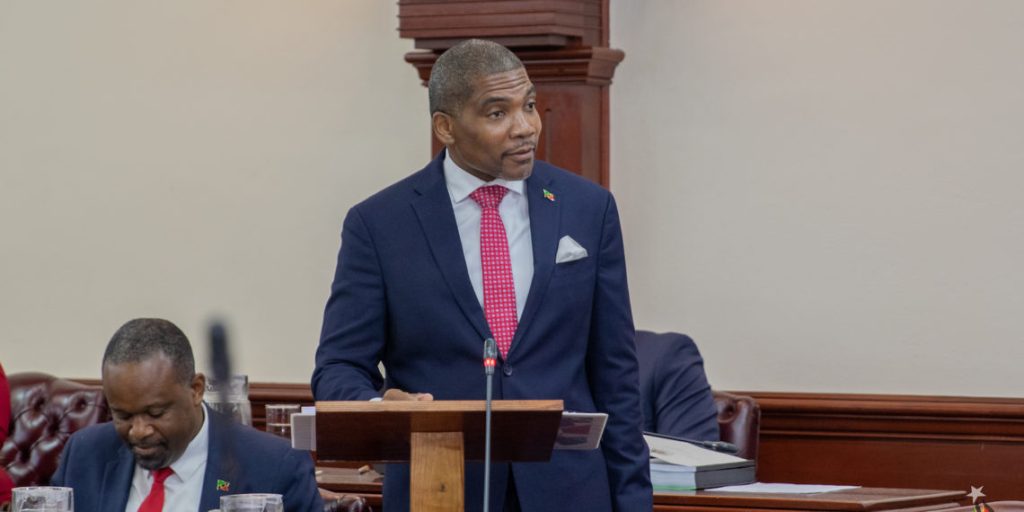Former Prime Minister Harris’s Administration Proposed 84% Ministerial Salary Increase, Exposing Hypocrisy, Says PM Drew.
The recent revelation by Prime Minister Terrance Drew of a proposed 84% salary increase for government ministers under the former Timothy Harris administration has ignited a firestorm of controversy in St. Kitts and Nevis. This revelation, unearthed during a review of the previous government’s budget, has exposed what Prime Minister Drew describes as rank hypocrisy, given the former administration’s public stance on fiscal responsibility and its criticism of the current government’s spending. The proposed increase, which would have seen ministerial salaries skyrocket, stands in stark contrast to the austerity measures imposed on the public sector and the narrative of shared sacrifice propagated by the previous administration. This discovery has raised serious questions about the former government’s priorities and its commitment to the well-being of the citizens of St. Kitts and Nevis.
The proposed salary hike, which was never implemented due to the change in government, would have significantly inflated the compensation packages of ministers, placing them far above the average citizen’s income. This disparity is particularly jarring considering the economic challenges faced by the nation during the period in question, including the fallout from the COVID-19 pandemic and its impact on tourism, a key driver of the local economy. The proposed increase also raises concerns about the former administration’s understanding of the economic realities faced by ordinary citizens and their apparent disconnect from the struggles of the very people they were elected to serve. The optics of such a substantial salary increase during a time of economic hardship are undeniably damaging and further fuel public distrust in political leadership.
Prime Minister Drew, in his address to the nation, highlighted the hypocrisy of the former administration’s actions, contrasting their proposed self-enrichment with their public pronouncements of fiscal prudence. He pointed to the previous government’s criticisms of his administration’s spending, arguing that the proposed 84% salary increase exposed their double standards and lack of genuine concern for the nation’s finances. This revelation underscores a broader pattern of alleged financial mismanagement under the previous administration, which is currently under investigation. The Prime Minister’s exposé has resonated with many citizens who feel betrayed by the former government’s actions and question the sincerity of their prior pronouncements on financial responsibility.
The controversy surrounding the proposed salary increase has further fueled the ongoing political tensions in St. Kitts and Nevis. Supporters of the former administration have attempted to downplay the significance of the proposed increase, arguing that it was never implemented and therefore should not be a subject of public scrutiny. However, critics counter that the very intention to implement such a substantial increase, particularly during a period of economic hardship, reveals the former government’s true priorities and its disregard for the economic well-being of the general population. This debate highlights the deep political divisions within the country and the ongoing struggle for public trust and confidence in the government.
The implications of this revelation extend beyond mere political posturing. It raises fundamental questions about accountability and transparency in government. The fact that such a significant proposed expenditure was not publicly disclosed raises concerns about the former administration’s commitment to open and transparent governance. The lack of transparency surrounding this proposed salary increase fuels public suspicion and undermines faith in the integrity of the political process. This incident underscores the need for greater transparency and accountability in government spending and the importance of holding elected officials responsible for their actions.
The controversy surrounding the proposed 84% ministerial salary increase serves as a stark reminder of the importance of responsible fiscal management and the need for governments to prioritize the well-being of their citizens. The disparity between the proposed increase and the economic realities faced by ordinary citizens highlights the disconnect that can exist between political elites and the people they represent. This incident underscores the need for greater scrutiny of government spending and the importance of holding elected officials accountable for their decisions. Ultimately, the controversy serves as a valuable lesson in the importance of transparency and responsible governance in upholding public trust and ensuring the well-being of the nation.
Share this content:












Post Comment